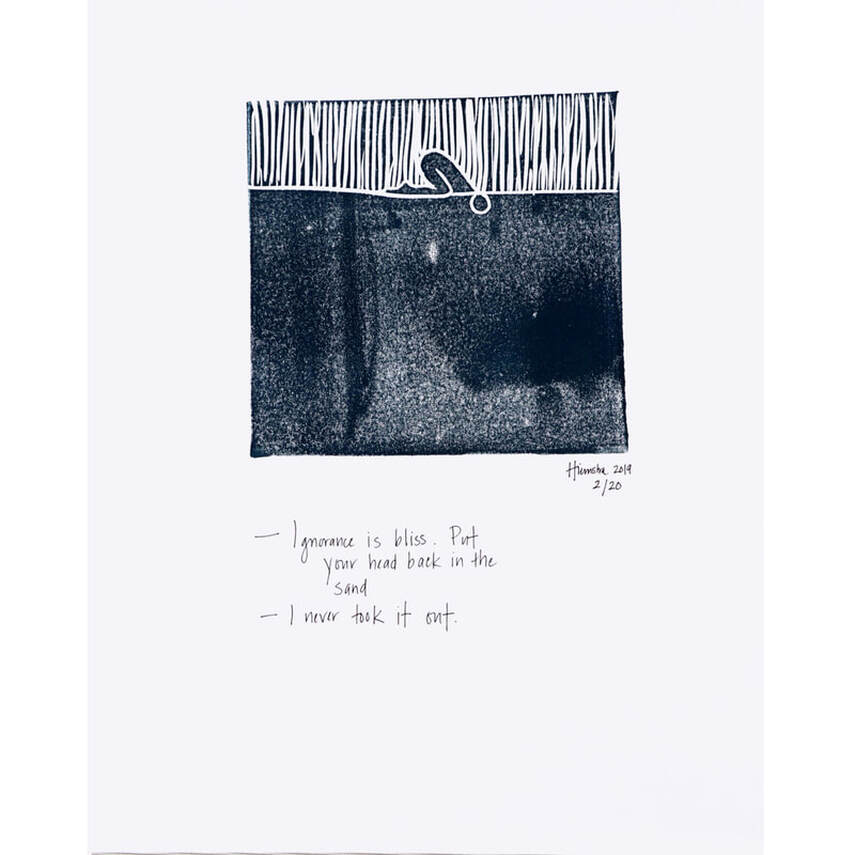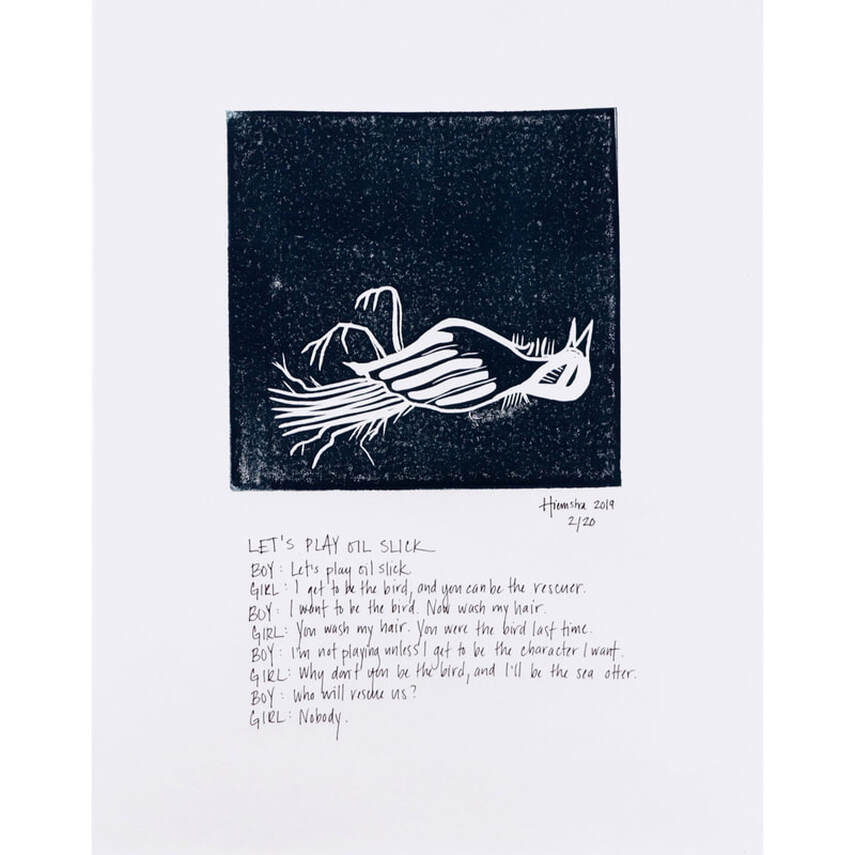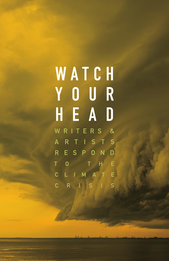|
10/28/2019 Poetry: cassidy McfadzeanTHE END OF THE WORLD WAS ANTI-CLIMATIC Bees waxed apocalyptic Change came in drones Cryptocurrency mining hurled the earth’s temp over its two degrees stronghold The permafrost thawed Iced Capps capsized Ancient seeds sprouted primordial strains of disease We were plagued by ennui Gave thanks our daily laundry to the teens practicing necromancy We battened the escape hatch Lowered false flags to half mast Missed the last lifeboats Setting sail off lost coasts Cassidy McFadzean's new book is Drolleries (M&S 2019). 10/22/2019 art: jessica joy HiemstraARTWORK BY JESSICA JOY HIEMSTRA POEMS BY KATHRYN MOCKLER DESCRIPTION Part of a series of cathartic reactions to Kathryn Mockler's #thisisntaconversation poems: searing, pithy, moving and funny snippets of writing that put a finger on our collective nerve around climate crisis. Kathryn and I decided that we wanted to donate 100% of the proceeds from these prints to Shades of Hope Wildlife Refuge, a registered charity based in Georgina, Ontario. Licensed by the Ministry of Natural Resources and Canadian Wildlife Services, SOH serves the GTA and areas throughout the South Central Ontario corridor. Their mandate: to nurture and rehabilitate injured and orphaned native wildlife with the goal of releasing healthy animals back into their natural habitats. Prints are available for purchase from this series, and 100% of the proceeds go to Shades of Hope Wildlife Refuge. Jessica Joy Hiemstra likes what Paul Klee once said about art – that one eye sees, the other feels. Jessica works in a variety of mediums on many kinds of surfaces - from watercolour and thread on paper to acrylic on acetate to plastic bags sewn into canvas. Jessica’s also a poet and designer. One of the things people often ask Jessica is “what’s the difference between all the things you do?” Jessica doesn’t distinguish much between her mediums. She just chooses the best medium for exploring whichever question, concern or exaltation is most pressing to her in the moment - from delight in the body to sorrow and anger at how poorly we care for our world and each other. Sometimes she uses words, sometimes pencil, sometimes paint. A selection of Jessica’s work is available as limited, signed prints in Jessica’s online shop.
Kathryn Mockler is the author of four books of poetry and six short films. She is the Editor of Watch Your Head, Canada Editor of Joyland Magazine, Publisher of The Rusty Toque from 2011-2017, and she teaches creative writing at Western University. She has a poetry chapbook written in collaboration with Gary Barwin forthcoming from Knife | Fork | Book (2020) and her debut collection of stories forthcoming from Book*hug (2121). She is working on a TV series pilot called Yardbird. 10/18/2019 Poetry: Nisa MalliPRAYER FOR HOMESICKNESS We brought tetrapacks of scents so our children would know the smell of summer rain on earth, video to show them what life looked like before and after the heat boiled the rivers and soil was never truly damp. In gravity just loose enough to trip us, our children lost their parents’ hooked-necked gait, their fixed hip-flexors, their fixation on shielding themselves from the sun. They grew leggy and light-kneed in this light world, grew out of their hand-me-down flight-suits. In their new home, where there is no way back, we wanted them to know what it means to come from and to a place. WE SPREAD OUR MILITARY MISSION in a thin serum of science, sent our soldiers into the desert with dictionaries, our exobiologists armoured in exoskeletons. In movies, first contact is almost always a surprise: the alien among us, unveiled by inhuman behaviour; the ship shimmering into rush hour. Ours had the formality of a late-collapse climate summit: everyone avowing commitment to shared cause and collective consternation, the real debate ducked into side rooms and under- mined by ceremony. All the safety protocol of first dates or hiking in bear country: begin in daylight, in public, pull rank on the audience of predators pulling their tongues out in hunger. Nisa Malli is a writer and researcher, born in Winnipeg and currently living in Toronto. She holds a BFA in Writing from the University of Victoria and has completed residencies at the Banff Centre and Artscape Gibraltar Point. Her first chapbook, Remitting, was published by Baseline Press in 2019.
|
|
ISSN 2563-0067 © Copyright 2023 | Watch Your Head Contributors Sign up for our Newsletter Buy our print anthology Watch Your Head: Writers & Artists Respond to the Climate Crisis (Coach House Books, 2020). |


